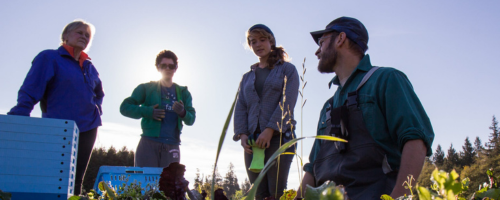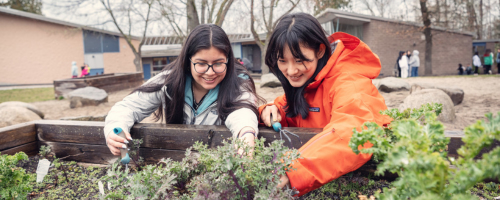Connect your interests and passions to one of our four dynamic undergraduate programs. You’ll find the perfect pathway to a successful and life-enhancing UBC experience. And you’ll navigate towards a meaningful future career that seeks to address, understand and tackle pressing global issues.
We empower and support our LFS undergrads to investigate rigorously, work collaboratively and develop innovative solutions to real-world challenges. Through hands-on, interdisciplinary study, you will discover how to engage confidently with issues from sustainability to climate change or from food security to animal welfare, fully preparing you for your future career path.
Link Up with LFS

Interested in applying to LFS? Learn how your interests and passions can connect to one of our undergraduate programs. You will also have the opportunity to explore student career options and meet the current Student Outreach team!
For High School Teachers and Counsellors

Our Land, Food & You program supports teachers in fostering student interest in local and global food-system issues as they relate to the BC high school curriculum. This program introduces students to LFS degree programs, while providing insight into the student experience.
Meet Our Students

Explore the diverse experiences of our LFS students—learn what drives them, what they’re involved in, and what advice they have for others considering or currently studying in LFS.
Connect with Us
Have questions about choosing an LFS program or joining the wider UBC community? Chat with a current LFS undergrad via email for insights on what it’s like to study here. And don’t forget to contact our friendly Academic Advisors for excellent LFS program advice and more.





